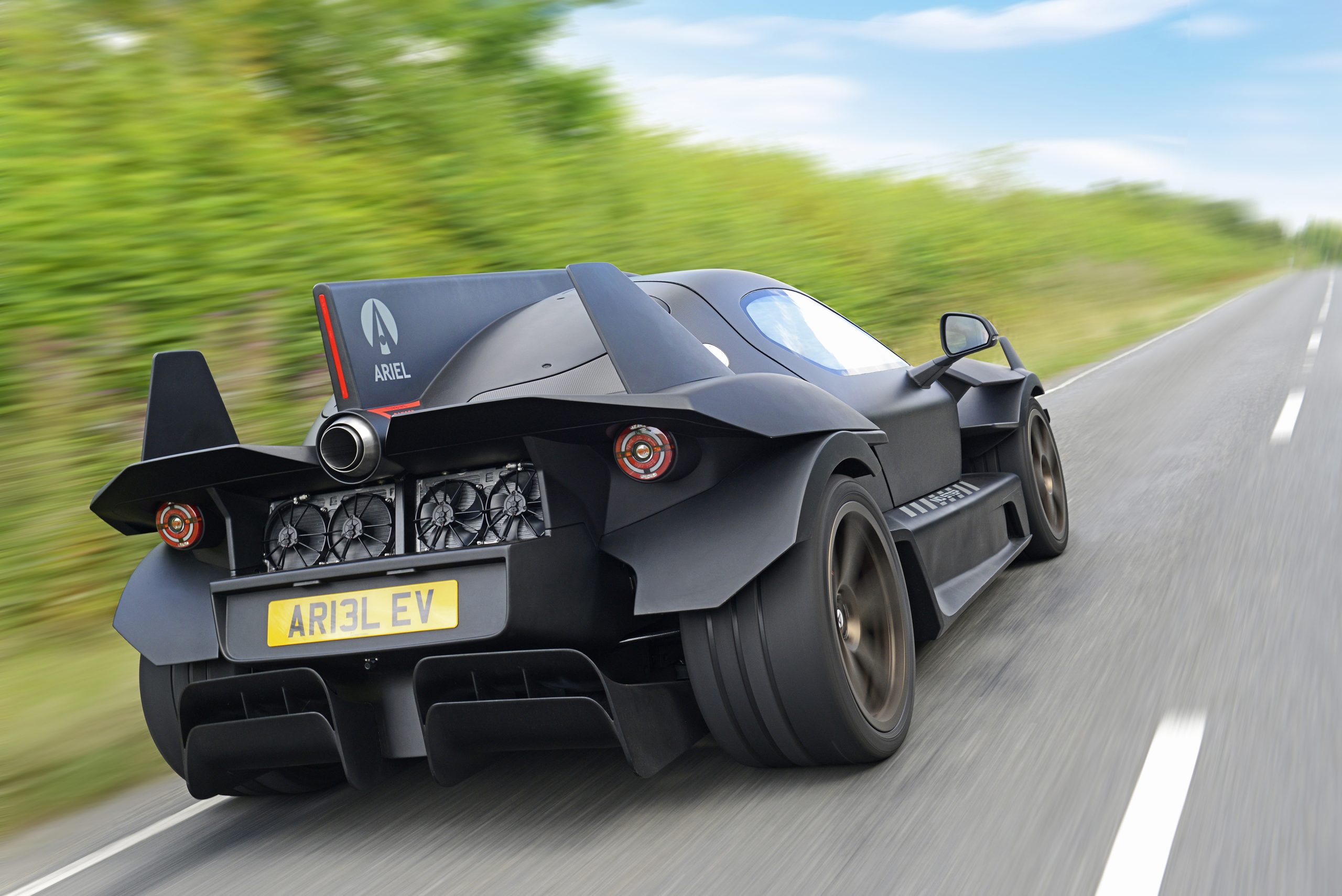Ariel HIPERCAR prototype makes public debut on the UK Government Pavilion at Cenex LCV 2022
Ultra-high performance electric sports car heralded as a major success story for UK clean automotive innovation.
A ground-breaking electric supercar designed and manufactured in the UK, is making its global show debut at this year’s Cenex LCV on the UK Government Pavilion. Ariel’s HIPERCAR is a state-of-the-art high-performance electric vehicle designed in partnership with a consortium of innovative UK SMEs. The car demonstrates the clean-tech possibilities of UK businesses and was made possible thanks to UK government investment channelled through the Advanced Propulsion Centre (APC).
The unveiling marks the latest phase of the project, following on from the completion of the initial proof of concept for HIPERCAR in 2017. The project is a great demonstration of how the UK innovation ecosystem can bring funding, insight, and expertise together from multiple project partners to achieve outstanding results. A £6 million investment from competition together with match funding from the project consortium has brought the Ariel HIPERCAR to life.
Many of the project partners have gone on to achieve impressive commercial success on the strength of technologies developed throughout the project, with notable examples being Delta Motorsport (acquired by Cosworth) and Equipmake, which has raised £10 million in its recent Aquis stock exchange growth market floatation. The project also provides a strong case study for the value of government-led investment in boosting the economy, developing IP and securing highly skilled jobs in the UK.
The design of the vehicle is based on pioneering EV technology developed by UK manufacturers. Available in both two- and four-wheel drive, it is has a lightweight aluminium bonded chassis structure and full carbon fibre body. Built for exceptional lightness (the two-wheel drive version of the car weighs in at below 1,400 kg), the HIPERCAR offers staggering performance, reaching speeds of 100 mph within a mere 4.4 seconds.
The HIPERCAR project consortium overcame several technological hurdles during the prototype stage, which manifested in new and exciting innovations. Among them, is an alloy motor featuring a revolutionary radial rotor architecture resulting in substantial power density improvements while cutting magnetic material usage by 25% to support weight reductions reducing the amount of rare earth materials needed. A unique and patented liquid-cooled battery system from Cosworth, was developed in response to the specific thermal management requirements of the vehicle. A ground-breaking split charging system capable of charging high voltage (800V) vehicles using more commonly available non-native 400V charging infrastructure offers yet another highlight from the project, underlining how initiatives such as the HIPERCAR can help accelerate innovation throughout the supply chain.
Philippa Oldham, Stakeholder Engagement Director at the Advanced Propulsion Centre, said:
“The unveiling of the HIPERCAR is a major milestone for a project that is several years in the making. The process of developing late-stage technologies is fraught with complexity, which the HIPERCAR project has managed to navigate with support from APC. The value of this project goes much deeper than the cutting-edge vehicle on display; government investment provides emerging cleantech innovators with a platform for success, at a time when the UK is working to proactively secure its position as a key player in the electric vehicle revolution. The fact that the businesses involved in this project have gone on to achieve so much is testament to its success in creating highly skilled jobs and returns for the economy.”
Alex Wood, Senior Project Delivery Lead, at Advanced Propulsion Centre said:
“The project highlights the power of conducting collaborative R&D in the UK. Despite significant macro-economic challenges and a global pandemic during the project duration the consortium worked together to meet the significant engineering project head on. As a result, the members have exceeded their initial expected outcomes, developing automotive qualified components, fostering new relationships in the UK automotive ecosystem, creating high-value skilled jobs and attracting significant follow-on investment.”


Sign up to
our newsletter
our newsletter
Sign up to receive our newsletter if you’re interested in hearing about automotive industry news, events, project funding opportunities, green job vacancies and success stories.